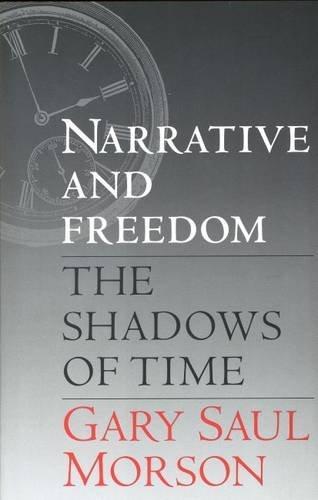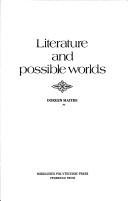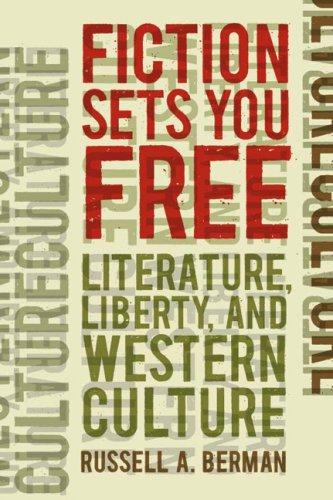A charming tale of kidney stones, Vagabonds, and economics.
User Profile
This link opens in a pop-up window
Curtis's books
User Activity
RSS feed Back
Curtis rated Buffy the Vampire Slayer: Tales: 4 stars
Curtis reviewed Quicksilver (The Baroque Cycle, #1) by Neal Stephenson
Curtis reviewed The remains of the day by Kazuo Ishiguro (Vintage international)
Review of 'The remains of the day' on 'Goodreads'
5 stars
I wish I hadn't waited so long to read this one.
First, the obvious comparison: Anyone who enjoyed Downton Abbey should read this.
How best to describe it? A butler fails at badinage.
Or perhaps a line, used ironically, from within the book itself, is the most appropriate description: "Why should one not enjoy in a lighthearted sort of way stories of ladies and gentlemen who fall in love and express their feelings for each other, often in the most elegant phrases?"
Curtis reviewed An alien heat. by Michael Moorcock
Review of 'An alien heat.' on 'Goodreads'
1 star
I've made a point of buying several Moorcock books in my various trips to library sales. Given his outspokenness about various science fiction and fantasy writers, such as Heinlein and Tolkien, one might think that his own fiction would be a worthy counterpoint to such. Alas, if this book is an example of Moorcock's best work – as some have claimed – then I am loath to read any of the other books that I have picked up. (Though, I will still probably read some of the Elric series...at some point, maybe.)
The story is confused, and somewhat confusing, at least at the beginning. While there are a few clever turns of phrase and droll ironies of clashing culture (some of the historical inaccuracies believed by the characters reminds me of Poe's "Mellonta Tauta"), there is little to motivate the reader to discover what happens to the characters in …
I've made a point of buying several Moorcock books in my various trips to library sales. Given his outspokenness about various science fiction and fantasy writers, such as Heinlein and Tolkien, one might think that his own fiction would be a worthy counterpoint to such. Alas, if this book is an example of Moorcock's best work – as some have claimed – then I am loath to read any of the other books that I have picked up. (Though, I will still probably read some of the Elric series...at some point, maybe.)
The story is confused, and somewhat confusing, at least at the beginning. While there are a few clever turns of phrase and droll ironies of clashing culture (some of the historical inaccuracies believed by the characters reminds me of Poe's "Mellonta Tauta"), there is little to motivate the reader to discover what happens to the characters in the story. In fact, had it not been so short of a book – just shy of 150 pages – I likely wouldn't have bothered to finish it. I don't expect to read any of the sequels.
I will say that Moorcock has a way with description. Probably the best aspect of the book is his ability to evoke images, often incredibly fantastic ones.
Curtis reviewed Blackbird and Wolf by Henri Cole
Review of 'Blackbird and Wolf' on 'Goodreads'
4 stars
Given to me by a friend from work as part of a book-themed Secret Santa exchange.
It's been a long time since I've read a book of poetry. I've read the occasional poem here and there, from time to time, but there's a certain enjoyment to simply having the time to dedicate (part of) a morning to slowly going through the book, poem by poem, and thinking about each one.
Most of Cole's poems are short, one-page (14-16 line) thoughts. In general, I liked his few longer poems better than the short ones – though I don't know if I can put my finger on precisely why, as the length itself doesn't have anything to do with it, I think.
My favorite poem, on a first read through, is "The Erasers." My favorite set of lines, however, is from "Persimmon Tree":
Poor Man, kind and apprehensive
he looks at himself …
Given to me by a friend from work as part of a book-themed Secret Santa exchange.
It's been a long time since I've read a book of poetry. I've read the occasional poem here and there, from time to time, but there's a certain enjoyment to simply having the time to dedicate (part of) a morning to slowly going through the book, poem by poem, and thinking about each one.
Most of Cole's poems are short, one-page (14-16 line) thoughts. In general, I liked his few longer poems better than the short ones – though I don't know if I can put my finger on precisely why, as the length itself doesn't have anything to do with it, I think.
My favorite poem, on a first read through, is "The Erasers." My favorite set of lines, however, is from "Persimmon Tree":
Poor Man, kind and apprehensive
he looks at himself but cannot see
the beauty of his free will unless
he's suffering at the hands of it.
My favorite line is from "Twilight": "I want to learn the faith of the indifferent."
Curtis reviewed Murder on the Orient Express by Agatha Christie
Curtis rated Cujo: Collectors Edition (Collectors' Editions): 4 stars

Stephen King: Cujo (1994, Plume)
Cujo: Collectors Edition (Collectors' Editions) by Stephen King (The Stephen King collectors edition)
The Cambers' once-friendly St. Bernard turns into a killer after being bitten by a rabid bat. Donna Trenton's husband is …
Curtis rated Narrative and freedom : the shadows of time: 4 stars
Curtis reviewed Catalyst (Star Wars): A Rogue One Novel by James Luceno (Star Wars: Rogue One)
Review of 'Catalyst (Star Wars): A Rogue One Novel' on 'Goodreads'
4 stars
From a strictly commercial standpoint, the book has done it's job: As the prequel book to the prequel movie Star Wars: Rogue One, I'm even more excited about seeing the movie than I was before. (Yes, I have my opening-night ticket...) The bonus is that it's a pretty good story in its own right.
It is essentially the story of the building of the Death Star, told from the perspective of several major players, including Tarkin; Orson Krennic, the Imperial engineer/administrator behind the project; Has Obitt, a smuggler with an awkward name for an English-language book ("Has had had..."); and Galen and Lyra Erso, scientists and parents to Jyn (the primary protagonist of Rogue One). Others are pulled in from various new canon sources for support, such as Saw Gerrera – a character introduced in The Clone Wars and portrayed by Forrest Whittaker in Rogue One.
Without …
From a strictly commercial standpoint, the book has done it's job: As the prequel book to the prequel movie Star Wars: Rogue One, I'm even more excited about seeing the movie than I was before. (Yes, I have my opening-night ticket...) The bonus is that it's a pretty good story in its own right.
It is essentially the story of the building of the Death Star, told from the perspective of several major players, including Tarkin; Orson Krennic, the Imperial engineer/administrator behind the project; Has Obitt, a smuggler with an awkward name for an English-language book ("Has had had..."); and Galen and Lyra Erso, scientists and parents to Jyn (the primary protagonist of Rogue One). Others are pulled in from various new canon sources for support, such as Saw Gerrera – a character introduced in The Clone Wars and portrayed by Forrest Whittaker in Rogue One.
Without spoiling specifics of the plot, the story turns out to be something of a Manhattan Project-esque tale. For better or worse, the broad strokes of the plot are clear fairly early on: Galen Erso is a scientist working on synthesizing kyber crystals (the gems that power lightsabers) and harnessing them to produce energy, and his work is manipulated/commandeered by the Empire in order to weaponize it, thus becoming the power source for the Death Star laser. But as with any story worth it's salt, how the story plays out on an individual character level is more interesting than the overall arc. For example, because we have all seen A New Hope, we already know who Tarkin is; we've never heard of Krennic before, however, and this story elucidates why.
While I did like the story overall, there are a couple problems with it. The first has to do with the timeline. As with [b:Lost Stars|25773165|Lost Stars|Lisa Selin Davis|https://images.gr-assets.com/books/1454554572s/25773165.jpg|45621803] by Claudia Gray, the story takes place over a number of years, and significant jumps in time – months or years – occur frequently. In a few cases, it was hard for me to keep track of what was going on elsewhere in the galaxy, especially in the early portions of the book which crosses through the timelines of Episodes II and III, as well as The Clone Wars. For example, it's hard to reconcile the timeline of Catalyst with the fleeting scene of Palpatine, Vader and Tarkin overseeing the early construction of the first Death Star at the end of Episode III. (Tarkin and the others seem not to be directly involved until much later in the process in Catalyst.) It may be that I simply need to refresh myself on those other stories, in particular The Clone Wars, which I tended to watch while doing dishes and other chores. In my opinion, Lost Stars did a better job of providing markers by which to anchor you to the canonical timeline of events, but as it mainly crossed the time period of the original trilogy (with which I am much better acquainted), that may be more a function of my own familiarity.
Secondly, Galen as the hyperintelligent-but-naïve scientist felt a little cookie-cutter to me, and it is hard for me to understand why Lyra waited around for him as long as she did. Yeah, yeah, love, kid, yadda-yadda-yadda. It would have been more interesting to me had either Galen been a bit more self-aware and deliberate in helping the Empire or had Lyra decided to leave without him...maybe both. (Not saying she would need to be callous about it – it could've been a difficult, but necessary, decision for her to make.)
Despite these issues, the story is worth reading. On a character level, the introduction of Jyn and hints about her character as a child – which will undoubtedly manifest in her character as an adult in Rogue One – are provocative, and there's little doubt that her parents' role in the development of the Death Star is a significant motivator for her in the movie. From a broader scope of the new Star Wars canon, the story does well in spanning the brief references we have to the Death Star in Episodes II and III with the actual construction (and implications) of it.
Curtis reviewed Literature and possible worlds by Doreen Maitre
Review of 'Literature and possible worlds' on 'Goodreads'
3 stars
Maitre takes a philosophical approach in considering the "possible worlds" created by literature. Overall an interesting idea, nonetheless I think she kind of phones it in. I found the first part of the book, where she outlines her philosophical tenets, to be much more interesting than the actual analysis of works in the second part, which spends far too much time recapping the stories she is "analyzing" while giving far too little analysis and application of her ideas to them. At most, she provides cursory insight without really delving into the implications of her ideas.
On the plus side, there were a few interesting moments in this book, and it's short, easily read in an afternoon or evening.
Curtis rated Aristotle On poetics: 5 stars

Aristotle On poetics by Αριστοτέλης
One of the first books written on what is now called aesthetics. Although parts are lost (e.g., comedy), it has …
Curtis reviewed Fiction Sets You Free by Russell A. Berman
Review of 'Fiction Sets You Free' on 'Goodreads'
4 stars
Broadly speaking, Berman makes a compelling argument that language and literature, as developments of the imagination, are largely liberal (in the classical sense) and democratizing forces. Portions of the argument intersect nicely with the work I am doing for my thesis on literature and praxeology – that is, the intersection of imagination and human action – and the book as a whole is intriguing. I would be interested particularly in the thoughts of my more linguistically/philologically inclined friends on Berman's early chapters about the development of language as an imaginative accomplishment of human beings.
While I do like Berman's argument overall, I do think he is wrong, or in some cases overstates, some of the particulars. It wouldn't be worthwhile to go through every such instance in this review, but I will give one example of each. In Chapter 6, "Religion and Writing," Berman argues that religion – and specifically …
Broadly speaking, Berman makes a compelling argument that language and literature, as developments of the imagination, are largely liberal (in the classical sense) and democratizing forces. Portions of the argument intersect nicely with the work I am doing for my thesis on literature and praxeology – that is, the intersection of imagination and human action – and the book as a whole is intriguing. I would be interested particularly in the thoughts of my more linguistically/philologically inclined friends on Berman's early chapters about the development of language as an imaginative accomplishment of human beings.
While I do like Berman's argument overall, I do think he is wrong, or in some cases overstates, some of the particulars. It wouldn't be worthwhile to go through every such instance in this review, but I will give one example of each. In Chapter 6, "Religion and Writing," Berman argues that religion – and specifically monotheistic, primarily Judeo-Christian religion – is a necessary component to the individuating nature of literature. Through religion, Berman argues, individuals are able to imagine a counterfactual existence beyond that of everyday experience that provides a teleological perspective to their lives. (That is a very simplistic summation of the argument, of course.) Berman claims this religious influence is necessary to the development of literature as a liberating force, but that claim does not hold up. Certainly Western Judeo-Christian religion has had an influence on literature, and even if it is the path through which we understand most (Western) literature today, it is not at all clear that it is the only path through which literature could have developed into the liberal, democratizing force for which Berman successfully argues throughout the rest of the book. Thus, Berman both gets the argument wrong, in my opinion, and then overstates it by devoting an entire chapter to the idea.
I am somewhat surprised, given the conclusions around imagination and its effect on the real world through human action, that there is no reference to Ludwig von Mises, or Austrian School economists in general, throughout the book, especially in the final chapter around "Imagination and Economy." I would be surprised if Berman were wholly unfamiliar with Mises's ideas, and his assumptions and statements about imagination as a precursor to human action is pretty much right out of [b: Human Action|81912|Human Action A Treatise on Economics|Ludwig von Mises|https://images.gr-assets.com/books/1328775326s/81912.jpg|1747054] – in fact, it is the very point on which I am hanging my own thesis. I suppose I shouldn't be too disappointed that Berman doesn't draw the connection, since it allows me to draw it instead. It just seems, to me at least, a rather conspicuous omission.
Finally, for my Tolkien Studies friends, there are a few moments worth mentioning in light of "[b:On Fairy Stories|1362112|Tolkien on Fairy-stories|J.R.R. Tolkien|https://images.gr-assets.com/books/1326706200s/1362112.jpg|1351902]." In later chapters, Berman frequently refers (non-pejoratively) to "suspension of disbelief." The way he discusses it, I think he means something akin to Tolkien's concept of a Secondary World created in the mind of the reader, and such an interpolation of Tolkien's Secondary World in place of "suspension of disbelief" in those instances, along with some alternative discussion, I think would make Berman's arguments about imagination and its effects on action that much stronger. Secondly, Berman dismisses the idea of literature as "escapist" (except, offhandedly, in "extreme circumstances," which he never defines): "The reader of imaginative literature should not be thought of as somehow escaping from a real world. On the contrary, it is through the aesthetic education of reading that the individual cultivates a capacity for imagination, for criticism, for alternative sensibilities and therefore for an amplified, not a lessened, ethical participation in the world" (p. 159-160).
All in all, I would recommend this book to anyone who is interested in literature as an imaginative pursuit. It is rather dense in some places – it is a technical book of literary theory, and Berman's diction reminds you of that about every other sentence – but it is worth taking the time to work through it.
Curtis rated Leaves on the wind: 5 stars

Zack Whedon: Leaves on the wind (2014)
Leaves on the wind by Zack Whedon (Serenity -- 4)
In the film Serenity, outlaw Malcolm Reynolds and his crew revealed to the entire 'verse the crimes against humanity undertaken …
Curtis rated The Dispossessed: 5 stars

The Dispossessed by Ursula K. Le Guin
E-book extra: In-depth study guide.Shevek, a brilliant physicist, decides to take action. He will seek answers, question the unquestionable, and …




















